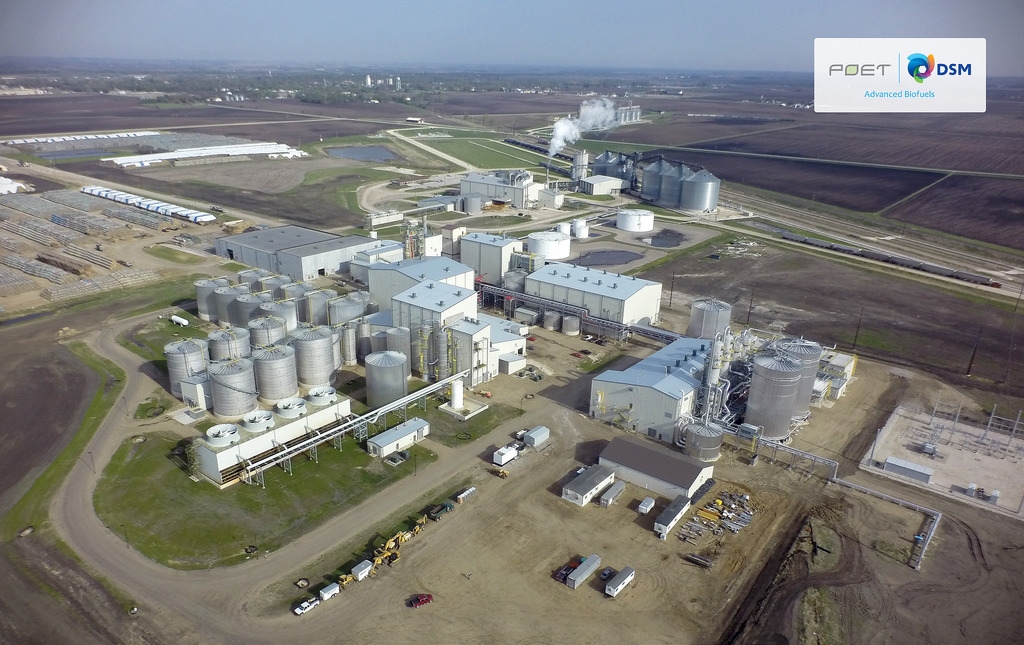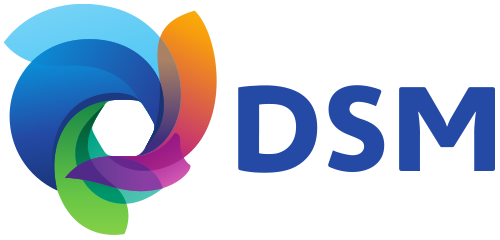Royal DSM is driving the market for the world’s most sustainable fuels
We Mean Business coaltition
 We Mean Business spoke with Atul Thakrar, President of DSM Bio-Based Products & Services about the company’s efforts to grow the market for the world’s most sustainable fuels with below50 – led by the World Business Council for Sustainable Development.
We Mean Business spoke with Atul Thakrar, President of DSM Bio-Based Products & Services about the company’s efforts to grow the market for the world’s most sustainable fuels with below50 – led by the World Business Council for Sustainable Development.
What technology is DSM developing, and what opportunities does this present for both the business and the climate?
DSM’s strategy is to deliver unique and differentiating technologies that enable biofuel plant owners to optimize their processes and maximize their yield and co-product creation. As a global science-based company with interests in bio-based materials, this plays to our strengths. It also delivers clear environmental benefits, helping make the production of biofuels even more sustainable.
To this end, DSM has developed patented bioconversion technologies (yeast and enzymes) for various feedstocks and processes in the biofuels industry. One illustrative example is a joint venture we have with US-based ethanol producer, POET. Together, we have built the first commercial-scale cellulosic biofuel plant in America. The plant converts corn crop residue to cellulosic biofuels. Our intention is to globally licence this as an integrated technology package.
Why did DSM become a founding member of the below50 campaign?
To accelerate the global transition to a low-carbon economy, DSM aims to increase the use of renewable energies. Through innovations and technologies, we are developing solutions that scale sustainable alternatives for fossil fuels, including biofuels.
We recognize that the complexity of the issues is too big for any one party to tackle alone. Collaboration and education is therefore essential if the market for the world’s most sustainable transportation fuels is to grow. This is as true across sectors as it is within the biofuels value chain itself (from farmer to consumer). Given that this is exactly what the below50 campaign aims to achieve, we decided to join.
What benefits have you gained already from your work with below50?
We have already experienced the value of joint national and international initiatives for influencing policy setting and exchanging knowledge. A holistic approach with stakeholders is required, working on the whole eco-system. As we move forward and expand our sustainable fuels network, we fully expect this same approach to remain fruitful.
What challenges have you encountered in your work with below50?
It takes substantial effort to set up a multi-stakeholder platform such as below50. Building the right institutional relationships and understanding where to complement – rather than duplicate – the activities of existing organizations takes time. That’s only natural.
Of course, the group has been able to operate effectively in conferences and policy debates up till now. Recent productive meetings in Brazil, the USA and Europe show this to be the case.
As with a number of other companies, DSM has been involved from the start of below50. It’s great that we’ve collectively managed to stay true to the same long-term vision and that we’ve maintained the high level of commitment throughout. Now, as we look forward, we at DSM are really excited at the prospect of taking below50 to the next phase.
What has been the reaction from others?
Really positive. Organizations such as the We Mean Business coalition have recognized the potential of below50, and have advocated positively and publicly for sustainable biofuels. The campaign now even has included “helping to grow the market for the world’s most sustainable fuels” in its menu of climate commitments that companies can take as part of the Take Action campaign.
What is your top policy priority?
Although government policies exist to stimulate the demand for biofuels around the world, the extent to which they do so differs. Consistent and proactive government policy is crucial in this market as building plants requires substantial investments. Without a strong element of certainty, it is difficult to grow the industry.
DSM’s policy objectives differ from country to country. Yet they all have the same overarching objective: the policies should be consistent, proactive and should create demand for sustainable biofuels.
Early adoption policies, such as the Renewable Fuel Standard in the United States, are key to support the development of viable technologies. Only then will we reach the necessary levels of investment to replicate and roll out more production.
The world is moving toward electrification. What role do you see for advanced biofuels?
We do not see these sources of energy as mutually exclusive. The challenge of decarbonizing the transport sector is so big that we clearly need multiple solutions. Sustainable biofuels are not only needed to decarbonize the aviation and maritime sectors, but road transport as well.
While newly produced road vehicles are rapidly evolving to be electrified, we still need to reduce the emissions of the large existing pool of cars with a combustion engine. Factors such as grid development, battery improvement and car replacement periods will all influence the pace and ultimate success of this transition. We strongly believe that biofuels must also be an important part of that mix.
How can the market for the world’s most sustainable fuels grow?
First, we need to get a clearer picture of which feedstock is most sustainable and scalable in specific geographies. Each have their unique weather conditions, natural resources and local economies, after all.
Second, policymakers need to be aware what biofuels opportunities they can tap in their own jurisdictions.
Third, we believe that the We Mean Business coalition’s Take Action campaign can be a true catalyst. Any company can sign up that produces, uses and/or invests in fuels that are at least 50% less carbon intensive than conventional fossil fuels.
- Find out how your company can grow the market for the world’s most sustainable fuels
- Download print version of case study
 About DSM
About DSM
Royal DSM is a global science-based company active in health, nutrition and materials. By connecting its unique competences in life sciences and materials sciences DSM is driving economic prosperity, environmental progress and social advances to create sustainable value for all stakeholders simultaneously. DSM delivers innovative solutions that nourish, protect and improve performance in global markets such as food and dietary supplements, personal care, feed, medical devices, automotive, paints, electrical and electronics, life protection, alternative energy and bio-based materials. DSM and its associated companies deliver annual net sales of about €10 billion with approximately 25,000 employees. The company is listed on Euronext Amsterdam.
 About below50
About below50
below50, brought to you by the World Business Council for Sustainable Development(WBCSD), aims to create demand for low-carbon fuels and scale up their deployment by increasing the number of companies choosing sustainable alternative fuels. This will create cross-sectoral opportunities along supply chains, while addressing legislative and financial barriers to bring these fuels into the mainstream. below50 brings together companies and organizations who commit to growing the global market for the world’s most sustainable fuels – that is fuels producing at least 50% less CO² emissions than conventional fossil fuels.

